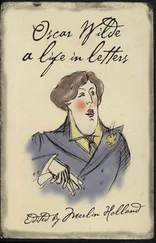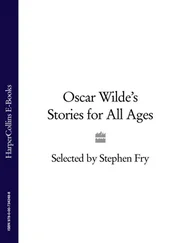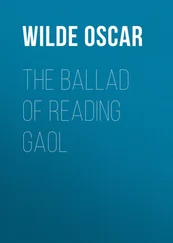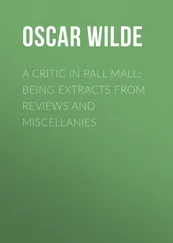Oscar Wilde - Reviews
Здесь есть возможность читать онлайн «Oscar Wilde - Reviews» — ознакомительный отрывок электронной книги совершенно бесплатно, а после прочтения отрывка купить полную версию. В некоторых случаях можно слушать аудио, скачать через торрент в формате fb2 и присутствует краткое содержание. Жанр: foreign_home, literature_19, cinema_theatre, foreign_prose, на английском языке. Описание произведения, (предисловие) а так же отзывы посетителей доступны на портале библиотеки ЛибКат.
- Название:Reviews
- Автор:
- Жанр:
- Год:неизвестен
- ISBN:нет данных
- Рейтинг книги:3 / 5. Голосов: 1
-
Избранное:Добавить в избранное
- Отзывы:
-
Ваша оценка:
- 60
- 1
- 2
- 3
- 4
- 5
Reviews: краткое содержание, описание и аннотация
Предлагаем к чтению аннотацию, описание, краткое содержание или предисловие (зависит от того, что написал сам автор книги «Reviews»). Если вы не нашли необходимую информацию о книге — напишите в комментариях, мы постараемся отыскать её.
Reviews — читать онлайн ознакомительный отрывок
Ниже представлен текст книги, разбитый по страницам. Система сохранения места последней прочитанной страницы, позволяет с удобством читать онлайн бесплатно книгу «Reviews», без необходимости каждый раз заново искать на чём Вы остановились. Поставьте закладку, и сможете в любой момент перейти на страницу, на которой закончили чтение.
Интервал:
Закладка:
And what a world it is! What a panorama of passions! What a pell-mell of men and women! It was said of Trollope that he increased the number of our acquaintances without adding to our visiting list; but after the Comédie Humaine one begins to believe that the only real people are the people who have never existed. Lucien de Rubempré, le Père Goriot, Ursule Mirouët, Marguerite Claës, the Baron Hulot, Madame Marneffe, le Cousin Pons, De Marsay – all bring with them a kind of contagious illusion of life. They have a fierce vitality about them: their existence is fervent and fiery-coloured; we not merely feel for them but we see them – they dominate our fancy and defy scepticism. A steady course of Balzac reduces our living friends to shadows, and our acquaintances to the shadows of shades. Who would care to go out to an evening party to meet Tomkins, the friend of one’s boyhood, when one can sit at home with Lucien de Rubempré? It is pleasanter to have the entrée to Balzac’s society than to receive cards from all the duchesses in May fair.
In spite of this, there are many people who have declared the Comédie Humaine to be indigestible. Perhaps it is: but then what about truffles? Balzac’s publisher refused to be disturbed by any such criticism as that. ‘Indigestible, is it?’ he exclaimed with what, for a publisher, was rare good sense. ‘Well, I should hope so; who ever thinks of a dinner that isn’t?’ And our English publisher, Mr. Routledge, clearly agrees with M. Poulet-Malassis, as he is occupied in producing a complete translation of the Comédie Humaine . The two volumes that at present lie before us contain César Birotteau , that terrible tragedy of finance, and L’lllustre Gaudissart , the apotheosis of the commercial traveller, the Duchesse de Langeais , most marvellous of modern love stories, Le Chef d’Œuvre Inconnu , from which Mr. Henry James took his Madonna of the Future , and that extraordinary romance Une Passion dans le Désert . The choice of stories is quite excellent, but the translations are very unequal, and some of them are positively bad. L’lllustre Gaudissart , for instance, is full of the most grotesque mistakes, mistakes that would disgrace a schoolboy. ‘Bon conseil vaut un œil dans la main’ is translated ‘Good advice is an egg in the hand’! ‘Écus rebelles’ is rendered ‘rebellious lucre,’ and such common expressions as ‘faire la barbe,’ ‘attendre la vente,’ ‘n’entendre rien,’ pâlir sur une affaire,’ are all mistranslated. ‘Des bois de quoi se faire un cure-dent’ is not ‘a few trees to slice into toothpicks,’ but ‘as much timber as would make a toothpick’; ‘son horloge enfermée dans une grande armoire oblongue’ is not ‘a clock which he kept shut up in a large oblong closet’ but simply a clock in a tall clock-case; ‘journal viager’ is not ‘an annuity,’ ‘garce’ is not the same as ‘farce,’ and ‘dessins des Indes’ are not ‘drawings of the Indies.’ On the whole, nothing can be worse than this translation, and if Mr. Routledge wishes the public to read his version of the Comédie Humaine , he should engage translators who have some slight knowledge of French.
César Birotteau is better, though it is not by any means free from mistakes. ‘To suffer under the Maximum’ is an absurd rendering of ‘subir le maximum’; ‘perse’ is ‘chintz,’ not ‘Persian chintz’; ‘rendre le pain bénit’ is not ‘to take the wafer’; ‘rivière’ is hardly a ‘ fillet of diamonds’; and to translate ‘son cœur avait un calus à l’endroit du loyer’ by ‘his heart was a callus in the direction of a lease’ is an insult to two languages. On the whole, the best version is that of the Duchesse de Langeais , though even this leaves much to be desired. Such a sentence as ‘to imitate the rough logician who marched before the Pyrrhonians while denying his own movement ’ entirely misses the point of Balzac’s ‘imiter le rude logicien qui marchait devant les pyrrhoniens, qui niaient le mouvement.’
We fear Mr. Routledge’s edition will not do. It is well printed and nicely bound; but his translators do not understand French. It is a great pity, for La Comédie Humaine is one of the masterpieces of the age.
Balzac’s Novels in English. The Duchesse de Langeais and Other Stories ; César Birotteau . (Routledge and Sons.)
TWO NEW NOVELS
( Pall Mall Gazette , September 16, 1880.)
Most modern novels are more remarkable for their crime than for their culture, and Mr. G. Manville Fenn’s last venture is no exception to the general rule. The Master of the Ceremonies is turbid, terrifying and thrilling. It contains, besides many ‘moving accidents by flood and field,’ an elopement, an abduction, a bigamous marriage, an attempted assassination, a duel, a suicide, and a murder. The murder, we must acknowledge, is a masterpiece. It would do credit to Gaboriau, and should make Miss Braddon jealous. The Newgate Calendar itself contains nothing more fascinating, and what higher praise than this can be given to a sensational novel? Not that Lady Teigne, the hapless victim, is killed in any very new or subtle manner. She is merely strangled in bed, like Desdemona; but the circumstances of the murder are so peculiar that Claire Denville, in common with the reader, suspects her own father of being guilty, while the father is convinced that the real criminal is his eldest son. Stuart Denville himself, the Master of the Ceremonies, is most powerfully drawn. He is a penniless, padded dandy who, by a careful study of the ‘grand style’ in deportment, has succeeded in making himself the Brummel of the promenade and the autocrat of the Assembly Rooms. A light comedian by profession, he is suddenly compelled to play the principal part in a tragedy. His shallow, trivial nature is forced into the loftiest heroism, the noblest self-sacrifice. He becomes a hero against his will. The butterfly goes to martyrdom, the fop has to become fine. Round this character centres, or rather should centre, the psychological interest of the book, but unfortunately Mr. Fenn has insisted on crowding his story with unnecessary incident. He might have made of his novel ‘A Soul’s Tragedy,’ but he has produced merely a melodrama in three volumes. The Master of the Ceremonies is a melancholy example of the fatal influence of Drury Lane on literature. Still, it should be read, for though Mr. Fenn has offered up his genius as a holocaust to Mr. Harris, he is never dull, and his style is on the whole very good. We wish, however, that he would not try to give articulate form to inarticulate exclamations. Such a passage as this is quite dreadful and fails, besides, in producing the effect it aims at:
‘He – he – he, hi – hi – hi, hec – hec – hec, ha – ha – ha! ho – ho! Bless my – hey – ha! hey – ha! hugh – hugh – hugh! Oh dear me! Oh – why don’t you – heck – heck – heck – heck – heck! shut the – ho – ho – ho – ho – hugh – hugh – window before I – ho – ho – ho – ho!’
This horrible jargon is supposed to convey the impression of a lady coughing. It is, of course, a mere meaningless monstrosity on a par with spelling a sneeze. We hope that Mr. Fenn will not again try these theatrical tricks with language, for he possesses a rare art – the art of telling a story well.
A Statesman’s Love , the author tells us in a rather mystical preface, was written ‘to show that the alchemist-like transfiguration supposed to be wrought in our whole nature by that passion has no existence in fact,’ but it cannot be said to prove this remarkable doctrine.
Читать дальшеИнтервал:
Закладка:
Похожие книги на «Reviews»
Представляем Вашему вниманию похожие книги на «Reviews» списком для выбора. Мы отобрали схожую по названию и смыслу литературу в надежде предоставить читателям больше вариантов отыскать новые, интересные, ещё непрочитанные произведения.
Обсуждение, отзывы о книге «Reviews» и просто собственные мнения читателей. Оставьте ваши комментарии, напишите, что Вы думаете о произведении, его смысле или главных героях. Укажите что конкретно понравилось, а что нет, и почему Вы так считаете.












